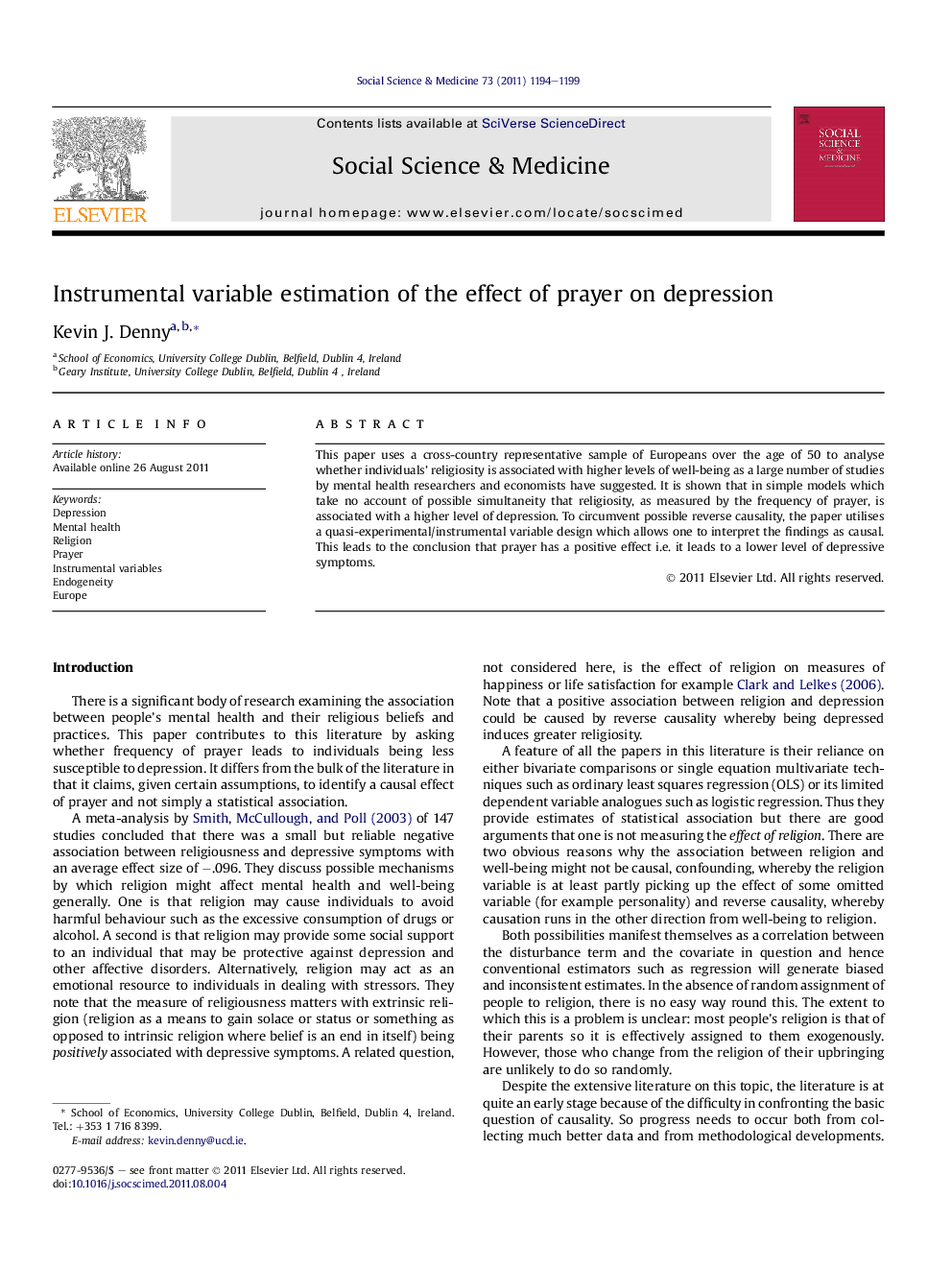| Article ID | Journal | Published Year | Pages | File Type |
|---|---|---|---|---|
| 952858 | Social Science & Medicine | 2011 | 6 Pages |
This paper uses a cross-country representative sample of Europeans over the age of 50 to analyse whether individuals’ religiosity is associated with higher levels of well-being as a large number of studies by mental health researchers and economists have suggested. It is shown that in simple models which take no account of possible simultaneity that religiosity, as measured by the frequency of prayer, is associated with a higher level of depression. To circumvent possible reverse causality, the paper utilises a quasi-experimental/instrumental variable design which allows one to interpret the findings as causal. This leads to the conclusion that prayer has a positive effect i.e. it leads to a lower level of depressive symptoms.
► This study uses Instrumental Variable methods to estimate the effect of exogenous variation in prayer frequency. ► The results show that a higher frequency of prayer causes a lower incidence of depression symptoms.
